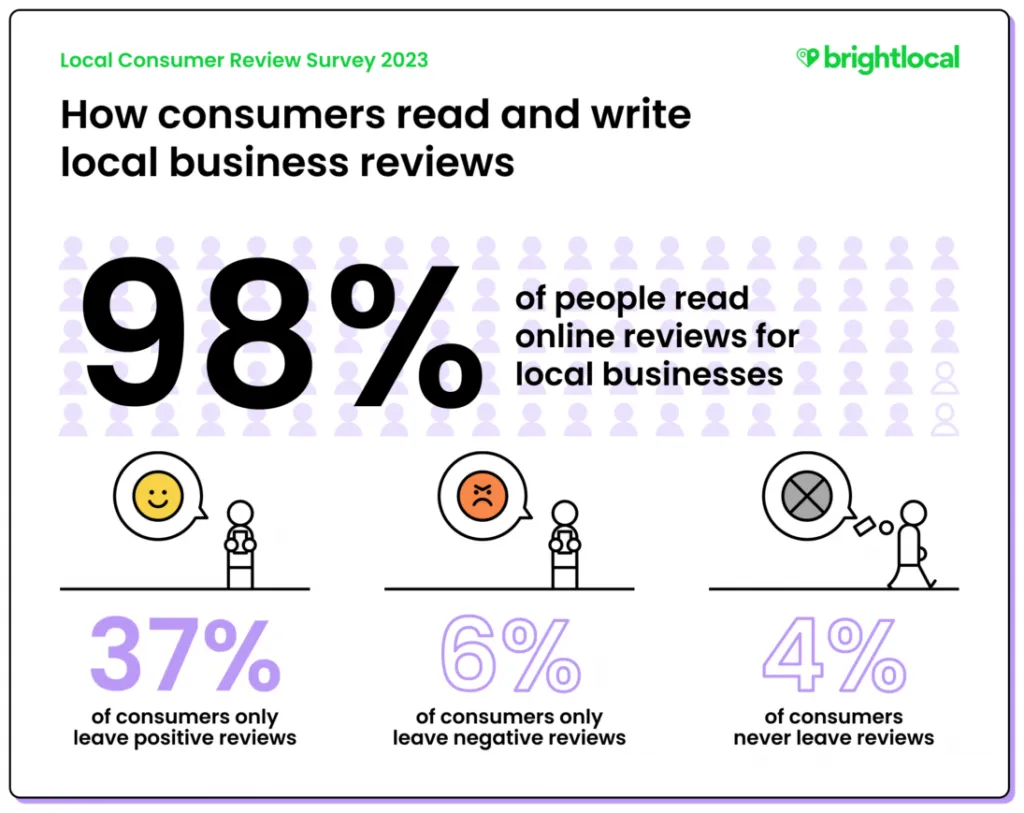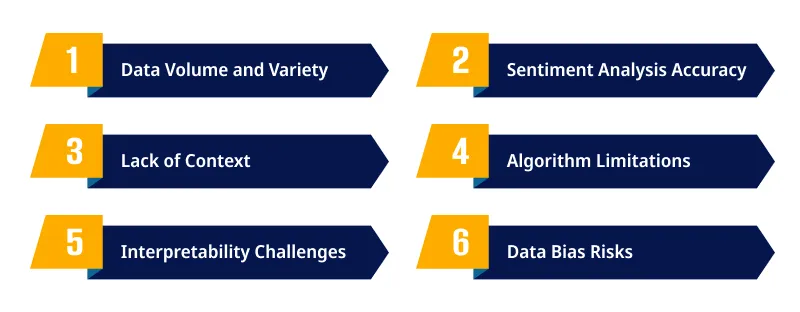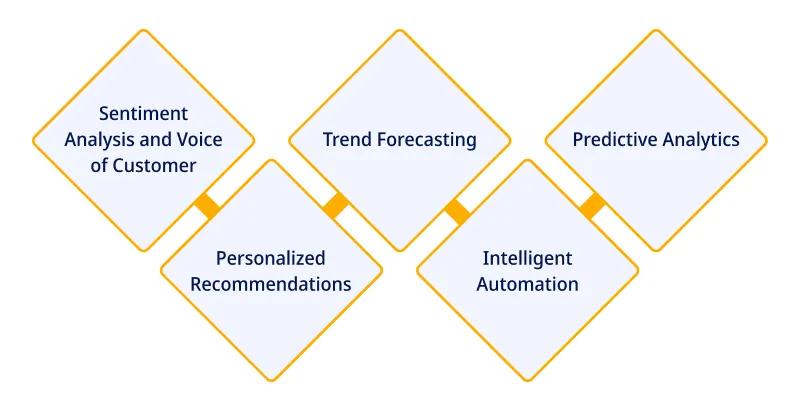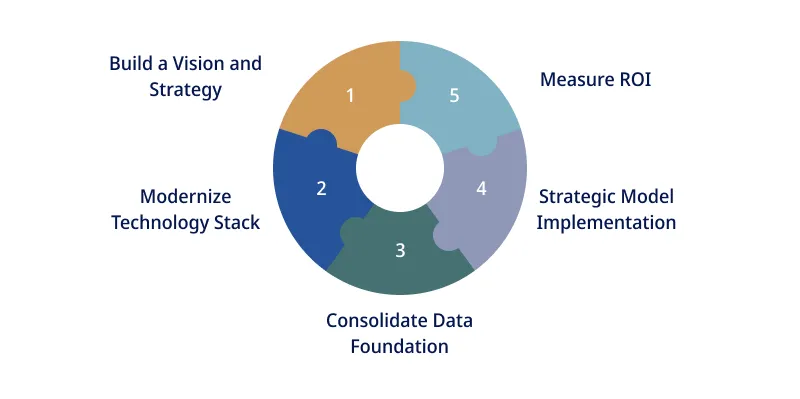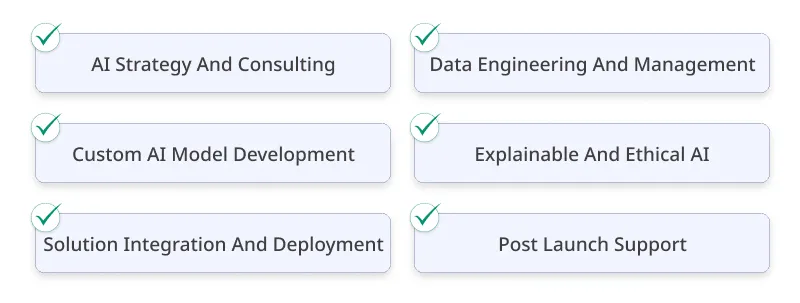Retailers today deal with more data than ever before.
With millions of customer interactions daily across reviews, surveys, social media, and more channels, decoding meaningful insights is a complex task. This is where AI comes in.
Extracting meaningful insights from the vast volume of daily customer interactions across reviews, surveys, social media, and numerous other channels is an intricate and challenging endeavor
AI in retail can potentially analyze these vast, unstructured data sets at scale to unlock transformative growth opportunities.
An IBM study reveals that top performers use AI to uncover predictive customer insights. With this intelligence, retailers can boost sales by 11% and customer lifetime value by 9%.
So, how exactly can AI-based solutions help understand customers better? Let’s explore.
This guide will discuss the business impact of customer sentiments, AI’s role in processing feedback data, and real-world case studies of AI in retail industry implementation.
You will also learn practical tips to integrate AI-powered analytics into your retail operations for data-driven decision-making and improved ROI. Equipped with these learnings, you can unlock AI’s potential to redefine the future of AI in retail excellence.
Customer Reviews and Social Media Feedback for Business Growth
Customer reviews and social media feedback are pivotal in driving purchase decisions today. Research shows that nearly 99% of customers read reviews before purchasing across categories.
No surprise that top brands actively collect and analyze feedback to understand customer needs better.
In fact, positive customer sentiments can directly uplift retail sales. A survey by BrightLocal indicated that over 49% of consumers trust online feedback and reviews as much as personal recommendations.
As customer conversations shift online, an omnichannel feedback loop is vital. Integrating AI can help retailers of all sizes process unstructured text data efficiently. The actionable analysis provides an accurate pulse on customer satisfaction levels.
For instance, UK apparel brand ASOS leverages AI algorithms to classify customer feedback from reviews as complaints, recommendations, or demands. These AI-driven retail insights helped rectify issues to enhance net promoter scores by 15%.
Similarly, beauty retailer Sephora deployed Artificial Intelligence in the retail industry for sentiment analysis on social data to fix 85% of service complaints, improving loyalty.
Find out how our AI consulting services can transform your retail operations and maximize profitability.
Rather than manual evaluation, AI in retail delivers impactful insights to rectify problems, improve brand perception, and boost repeat purchases. The key lies in partnering with reliable retail & ecommerce software development teams to unlock true potential.
Challenges in Analyzing Customer Feedback
Analyzing the sheer volume of customer feedback poses significant data challenges for retailers today. These challenges include:
1. Data Volume and Variety
- With millions of customer interactions daily across multiple channels like reviews, surveys, emails, social media, etc., the scale of feedback data poses analysis hurdles.
- Data formats also vary – text, voice, video, etc.- and need extensive pre-processing.
2. Sentiment Analysis Accuracy
- Retail with AI-driven customer insights handles complex emotions like sarcasm, humor, and subtle linguistic nuances, making accurate classification difficult via legacy text-mining tools.
- Domain-specific vocabulary and spelling errors also complicate automated sentiment analysis, affecting reliability.
3. Lack of Context
- Isolated text from various sources often lack contextual cues, causing inaccurate assessments.
- For e.g., rating +ve review low if the system misses product/service specifics.
4. Algorithm Limitations
- Traditional rule-based models cannot handle evolving retail data patterns and textures like deep learning techniques.
- Requires continuous retraining on new data for reasonable analysis accuracy.
5. Interpretability Challenges
- Certain AI techniques act like black boxes, making outputs harder to interpret.
- Lack of explainability hinders adoption by business users and data scientists.
6. Data Bias Risks
- Historically biased data (target segments, demography, etc.) can creep into AI through feedback.
- Can adversely impact fairness, transparency, and accountability.
Also Read: How Big Data Analytics In Retail Industry Is Transforming The World
By leveraging expert consulting from an Artificial Intelligence development company, retailers can overcome these barriers to unlock the true potential of AI within the voice of customer strategy.
What retailers need are innovative analytics platforms that can ingest unstructured data from diverse sources and decipher insights at scale. This is where generative AI in retail comes in. Powered by deep learning and NLP, AI can accurately comprehend sentiments, emotions, and demands within text.
Whether product reviews, chat conversations, emails, or social media – AI provides a holistic perspective. Leading brands like Sephora use Artificial Intelligence, reshaping retail with such capabilities to enhance their voice of customer strategy.
Investing in expert AI consulting services to design the ideal solution is vital to leverage AI’s potential. Alternatively, retailers can hire AI engineers to develop customized models for their business requirements.
Trust ValueCoders to analyze your customer feedback and uncover valuable insights for growth.
Unleashing Potential of AI for Retail Industry Acceleration
The retail industry is being revolutionized by Artificial Intelligence, enabling data-driven decision-making at unprecedented scale and efficiency.
Artificial Intelligence is reshaping retail to unlock valuable customer and market insights from vast volumes of structured and unstructured data – something manual methods cannot cope with.
Let’s explore some key areas where AI is driving retail innovation:
1. Sentiment Analysis and Voice of Customer
Leverage natural language processing to analyze emotions and feedback shared by customers across review sites, social media, surveys, and call transcripts. Decipher granular insights on satisfaction levels, pain points, and service complaints. Rectify issues in real-time to boost customer loyalty and brand perception.
2. Trend Forecasting
Identify shifts in consumer behavior, changes in product preferences, and emerging trends by analyzing customer feedback and industry data patterns using machine learning solutions. Adapt pricing, promotions, and assortments to align with the latest trends in a timely manner. Gain a competitive edge.
3. Predictive Analytics
Hire machine learning engineers with techniques like regression and neural networks on transactional data, customer demographics, product trends, etc.
Generate accurate forecasts for demand planning, inventory optimization, and promotional strategies for the upcoming season. Minimize stock-outs.
4. Personalized Recommendations
Track individual customer behavior in terms of browsing patterns, purchase history, and shopping habits. Deliver tailored recommendations on products and services via emails, push notifications, and digital channels to improve conversion rates.
5. Intelligent Automation
Chatbots and Virtual Assistants resolve queries instantly via self-service, route complex cases to agents, and suggest purchases. Automate mundane reporting and email campaigns via robotic process automation, freeing up human bandwidth.
Overall, AI transforms decision-making across the retail value chain – merchandising, marketing, operations, or customer engagement.
The key lies in developing customized AI solutions based on business priorities by collaborating with expert data science partners specialized in retail. This helps maximize return on analytics investment.
AI-Powered Retail Triumphs
Global retail giants like Amazon, Walmart, Sephora, and Starbucks are adopting AI in retail examples to redefine customer experience, unlock operational efficiency, and accelerate growth.
1. Amazon
The ecommerce leader leverages the power of data and AI across multiple business functions:
- Personalized Recommendations: Analyzes individual customer behavior and purchase history data to provide tailored product suggestions across web and mobile channels. This drives 35% of Amazon’s revenue.
- Demand Forecasting: AI algorithms predict likely product demand leveraging past sales data, search trends, inventory levels, pricing fluctuations, and weather data. Enables dynamic inventory optimization.
- Logistics Planning: Machine learning models determine optimal warehousing locations and distribution routes to fulfill orders quickly and cost-effectively.
2. Walmart
The retail giant taps AI to transform customer engagement and in-store experience:
- Intelligent Chatbots: Customers can find answers to generic buying queries via fast, accurate AI-powered chatbots. Easy self-service offloads calls to human agents.
- In-store Analytics: Using image recognition and sensors, AI analyzes in-store customer movement, dwell time by sections, and demographics to derive footfall insights. Helps improve store layouts and product displays.
Partner with ValueCoders to harness the power of data analytics for targeted promotions.
3. Sephora
The leading beauty retailer leverages AI to redefine cosmetics shopping:
- Virtual Try-on: Powered by AI, Augmented Reality allows customers to digitally try thousands of lipstick shades, eyeshadows, and foundations for better color matching.
- Beauty Advisor: Machine learning algorithms provide each shopper with personalized product recommendations based on skin type, tone, face shape, and makeup preferences.
4. Starbucks
The coffee giant uses AI to optimize customer engagement and store operations:
- Menu Optimization: Natural Language Processing (NLP) derives actionable insights from customer feedback on food and beverages to launch successful new products.
- Supply Chain Forecasting: AI accurately predicts store-level inventory needs, optimizes supply planning, and reduces wastage. Improves availability of ingredients.
The success of these global chains demonstrates AI’s effectiveness in driving growth – from boosting customer experience to increased sales and marketing ROI. The future is AI-powered for forward-thinking retail.
Also read: How AI Is Driving ECommerce Success In Customer Experience
Integrating AI-Powered Analysis in Retail Businesses
Successfully integrating AI into retail necessitates strategic planning and systematic execution across people, process, and technology dimensions.
1. Build a Vision and Strategy
- Educate leadership on AI’s business benefits – whether boosting revenue, customer lifetime value, or operational efficiency.
- Define a retail industry-specific AI strategy aligned to business goals.
- Set success metrics and KPIs to track AI implementations’ ROI.
2. Modernize Technology Stack
- Assess existing legacy systems like CRM, POS, and inventory management for readiness to connect with AI data platforms.
- Upgrade underlying infrastructure to manage large datasets – high volume storage, robust networks.
- Shift to agile, scalable cloud platforms to host and operationalize AI models for faster innovation.
3. Consolidate Data Foundation
- Break siloed data into business functions such as online sales, marketing campaigns, social media, and supply chain.
- Aggregate onto a typical data lake such as AWS S3 or GCP BigQuery, providing governance for security and accessibility.
- Catalog metadata and ensure consistent formatting and quality for AI model training and deployment.
4. Strategic Model Implementation
- Prioritize retail operational areas for AI adoption based on needs – CX, demand forecasting supply chain, etc.
- Develop customized AI models leveraging internal teams’ domain expertise and external AI consulting partners.
- Validate models thoroughly before integration into business workflows through dev-to-prod pipelines.
5. Measure ROI
- Track KPIs defined in vision to quantify AI impact – marketing qualified leads, purchase conversion rates, customer lifetime value, etc.
- Monitor model drift to check the accuracy of live data before performance drop-offs.
- Continuously gather user feedback to improve adoption across the retail organization.
By taking an agile, iterative approach, retailers can drive widespread user adoption of AI-driven retail and maximize analytics ROI.
The key is collaborating with an experienced adaptive AI development company through the integration process for sustainable value delivery.
The future success of retail lies in making AI business-as-usual. Reliable B2C ecommerce solutions partners can make this vision a reality.
Partnering with AI Consulting and Software Development Experts
Navigating the complex AI landscape requires working with reliable partners providing end-to-end capabilities:
1. AI Strategy and Consulting
- Understand existing retail tech constraints and data ecosystems and identify priority business needs.
- Define data-driven AI roadmaps, governance frameworks, and success metrics, providing direction.
2. Data Engineering and Management
- Set up cloud data platforms and ensure the availability of clean, labeled datasets for model building.
- Develop data pipelines and ETL processes leveraging big data and DevOps best practices for seamless integration.
3. Custom AI Model Development
- Leverage business understanding and deep learning expertise to build AI models like product recommendations and demand forecasting catered to retail needs.
4. Explainable and Ethical AI
- Incorporate transparency and accountability in algorithms to measure bias and fairness and enable trust.
5. Solution Integration and Deployment
- Operationalize AI within existing retail systems like CRM, ERP, and POS systems through APIs and microservices.
Find out how our AI software development can help you identify trends and capitalize on market opportunities.
6. Post Launch Support
- Refine models continuously by maintaining feedback loops with users.
- Upskill in-house teams via knowledge transfers for self-reliance.
By guiding across this lifecycle, generative AI services and machine learning development companies accelerate AI in retail adoption, which is critical for staying competitive. Artificial intelligence is reshaping retail and customer experiences.
Unlocking AI Potential for Retail Excellence
There’s no denying AI in retail is transformative. Leveraging capabilities like sentiment analysis, predictive modeling, and process automation, AI enables smarter decisions through data-driven intelligence. It is helping global retailers reimagine the shopping experience while unlocking operational efficiency.
The future success formula for retail lies in making AI a strategic capability driving competitive advantage. However, realizing AI’s full potential necessitates an agile, iterative adoption approach and reliable technology partners.
At ValueCoders, our experts have delivered successful AI outcomes for global retailers. Our customizable solutions, combined with deep learning, data engineering, and industry expertise, accelerate AI adoption while optimizing costs.
Intrigued by AI? Schedule a consultation with our specialists to develop your retail AI roadmap, identifying high-value opportunities tailored to your specific environment and strategic priorities. Drive AI-fueled retail excellence.

